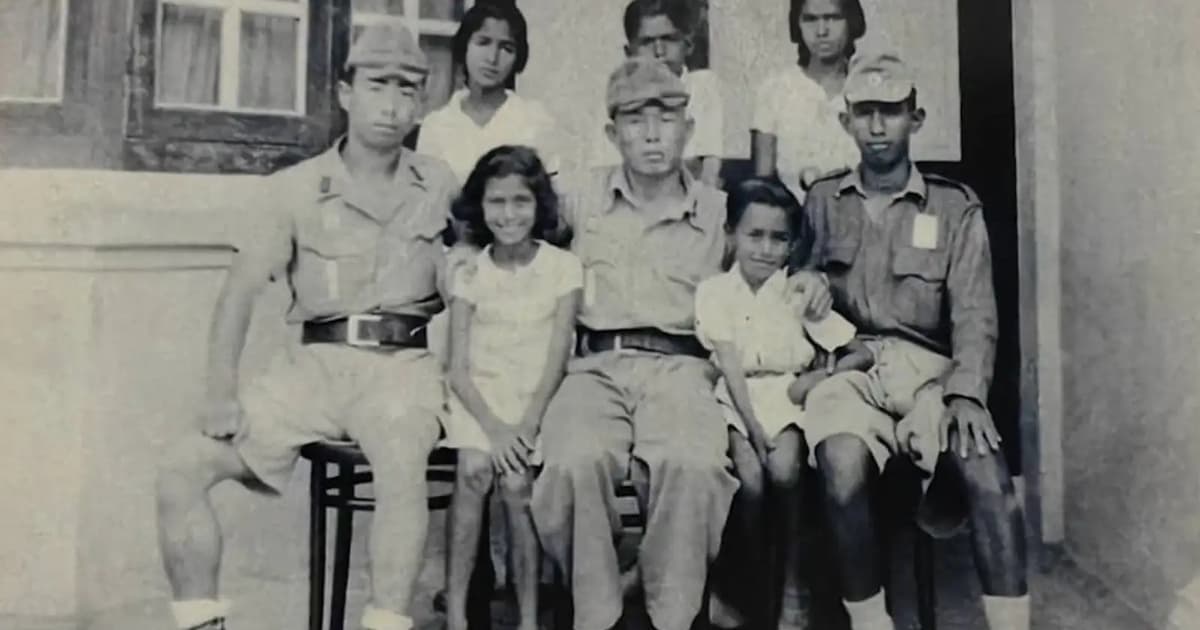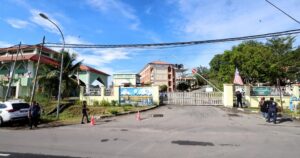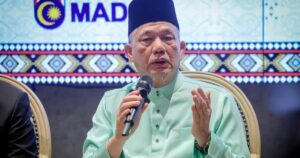
It has been 80 years since the Japanese laid their weapons down and left Malaya. Still, for those who lived through the Japanese Occupation, some memories are hard to forget.
For Sarvaesvaran Navaratnam, these are painful recollections. But there are also unexpectedly tender ones: during those difficult years, Sarvaes formed unlikely friendships with several Japanese soldiers.
“One of my most important friends was Aoyagi. He was very close to us and used to visit our home,” Sarvaes, 95, told FMT Lifestyle.
Aoyagi, he added, would join his mother in the kitchen and help her grind chilies. “He learnt about our culture and food. He also told us what was happening in Japan.”
To the family, Aoyagi became more than just a soldier from a distant land. “He was part of the family,” added Sarvaes, a retired teacher living in Penang.
There was also a Japanese pilot named Imai-san. At the time, Sarvaes and his family were living in the government quarters near the sea, and his father often left the front door open to let the breeze in.
One day, a Japanese walked in, asking for water to fill the radiator of his truck. And that was how Sarvaes came to know Imai-san.
Imai-san grew close to the family and often visited them. He even crafted a miniature plane model for Sarvaes, a keepsake he treasures to this day.

Looking back, Sarvaes believes it was his ability to speak Japanese rather fluently that helped break down barriers and turn foes into friends. But Sarvaes also endured the harsher realities of life under Japanese rule.
“Rice was rationed. So, we had to substitute by eating potatoes, sweet potatoes and cassava. We really suffered,” he said.
“We all tried to learn the Japanese language to fight for food. We were given badges depending on how well we spoke the language – either red, green or yellow. Red was the best and with it, we got extra rice and sugar.”
His wife, Indradevi Singaram, remembers similar hardships. Growing up in Taiping, her family turned to the land for food.
“My father planted vegetables with the help of my brothers. He also reared chickens and ducks. Later, he bought a cow so we could have milk,” the 90-year-old retired teacher shared.
“We had to work very hard. I had to follow my father to graze the cows. We were hungry all the time.”
Although life was difficult, she added, enduring those years made her stronger. But hunger was not the only hardship. Tragedy also struck in Penang, where her grandparents lived.

“My grandmother told me my grandfather was passing through Carnarvon Street in a trishaw when bombs were dropped. A piece of shrapnel hit him and he died on the spot,” she said.
At home, her grandmother had heard the explosions and waited anxiously for her husband’s return. But he never did – and she later learnt he had been killed.
When the Japanese finally surrendered, the British returned to Malaya. “We were very, very happy when we saw the British soldiers. They gave us chocolate bars and tinned food,” Indradevi recalled.
“We welcomed them. They brought us rice and flour, among others,” added Sarvaes.
For him, the moment was bittersweet – it meant saying goodbye to his Japanese friends. “When Aoyagi left, we cried. I remember that he cried, too.”
Yet, the bond they formed was not forgotten. Decades later, Aoyagi returned to Malaysia to meet Sarvaes and his family. It was a wonderful reunion during which he presented Sarvaes with a Japanese doll.

Like many others who survived the Japanese Occupation and British rule, Aug 31, 1957 was significant for the couple. “We were happy that the country got her freedom,” said Sarvaes.
For Indradevi, that freedom meant more than just independence: it was the gift of peace. “We’re really thankful for the peace we continue to enjoy to this day,” she said.
Indeed, their story speaks of the contradictions of war, of pain and loss, as well as unexpected friendships.
It’s a poignant reminder that the independence and peace that Malaysians enjoy today came with a price, and must never be taken for granted.






